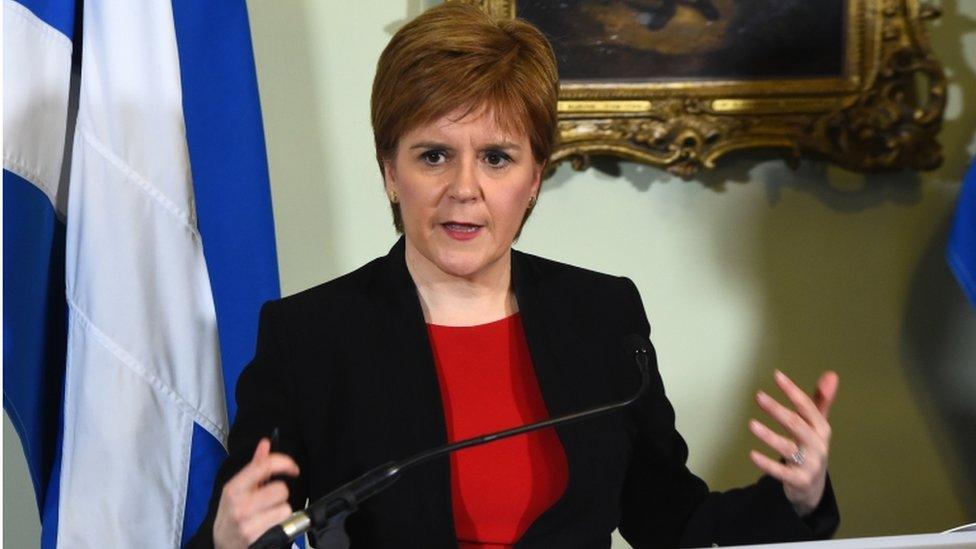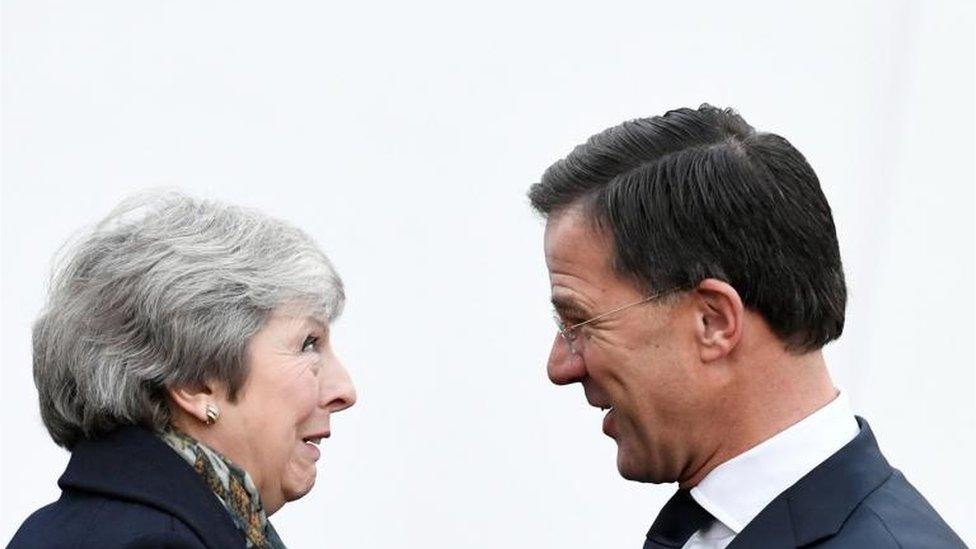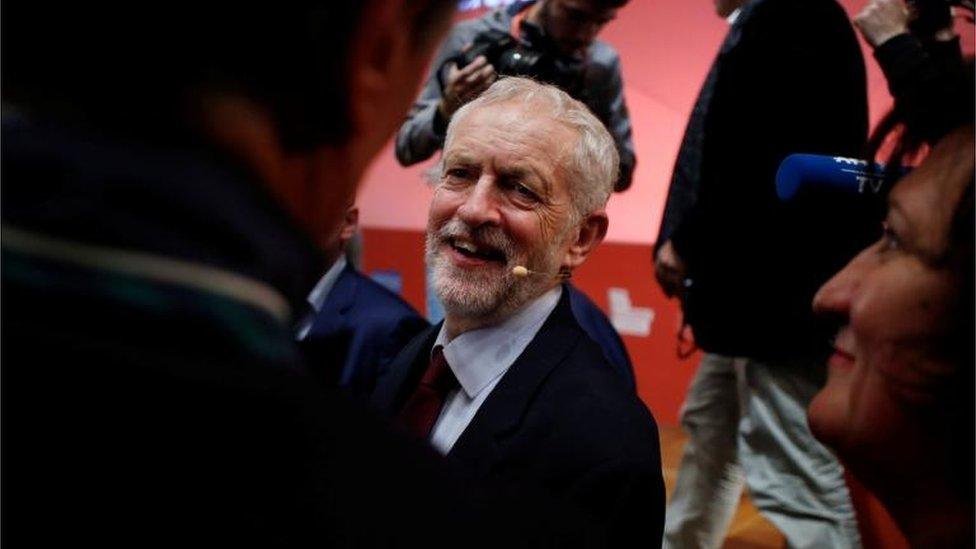Brexit: Sturgeon urges Corbyn to bring down May
- Published

Ms Sturgeon says her SNP MPs will back a no-confidence motion if Labour lodges one
Scotland's first minister has challenged Labour leader Jeremy Corbyn to stop "posturing" and take action to bring down the government.
Labour has said it will not lodge a motion of no-confidence in Prime Minister Theresa May until she returns from talks with EU leaders.
But Nicola Sturgeon said Mrs May was being allowed to "run down the clock" on Brexit.
She said action had to be taken now if a "different path" was to be found.
Mrs May is holding talks with Dutch PM Mark Rutte and Germany's Angela Merkel after postponing a Commons vote on her Brexit deal, which she was expected to lose heavily.
Mr Corbyn had hoped to force a general election if Mrs May lost the vote, but his party now argues that a no-confidence motion has more chance of success when the vote is eventually held - although no date has yet been set.
Speaking to the BBC's Today programme, Ms Sturgeon asked: "If the time is not right now, when will it be right?"
And she claimed that Mrs May was: "Trying to run down the clock, hoping to get to a point where people have to back her because there's no alternative."
The first minister added: "It's a government that has ceased to govern - it's not functioning any longer so it can't go on and I think it is incumbent now on the official opposition to lodge a motion of no confidence. I signalled yesterday that the SNP would support that."

Theresa May is holding talks with EU leaders including Dutch Prime Minister Mark Rutte
Liberal Democrat leader Sir Vince Cable, Green MP Caroline Lucas, the SNP's Westminster leader Ian Blackford and Plaid Cymru Westminster Group leader Liz Saville Roberts have written to Mr Corbyn arguing that there is now an "overwhelming" case for a confidence motion following Mrs May's decision to defer the Commons vote on her Brexit deal.
Mr Blackford told a media conference that Mr Corbyn "has to do that by the close of business today" or the other opposition parties would "accept that responsibility and lay down that motion of no confidence."
Mr Corbyn has repeatedly made clear that he wants an early general election to allow Labour a chance to take over the Brexit negotiation process.
A Labour spokesman said on Monday that the party would table a no-confidence motion "when we judge it most likely to be successful", indicating that this would probably be when Mrs May returns from Brussels with whatever reassurances she has been able to obtain from the EU.
General election
A general election would be triggered 14 days after a successful no confidence motion, unless MPs express their confidence in the prime minister or a successor in a subsequent vote within that time.
Ms Sturgeon said winning a vote of no confidence - which would need a majority of MPs to back it - would allow the opposition to "get rid of this government and try to find a different path forward for the country".
But even if it was not successful, she argued that it would clarify Labour's position on another referendum on Brexit - which Ms Sturgeon backs.
She added: "Their excuse for not backing that in a wholehearted way is that they would prefer to have a confidence vote and a general election.
"So if it proves that that's not possible at this time then we can move on to what I think is now the only way of resolving this whole sorry mess, which is to allow people to have their say in another vote.
"The government has had plenty of time but it has failed to bring forward a plan that commands a majority either in Parliament or in the wider country. This delay I don't think is going to change anything in any fundamental way."

Jeremy Corbyn says his preference is for a general election rather than another Brexit referendum
The prime minister is seeking "further assurances" from the EU about the plan for the Northern Ireland border as she attempts to salvage the Brexit deal that her government negotiated with the EU.
Critics object to the backstop plan - a temporary customs arrangement designed to prevent the need for checkpoints at the Irish border if a long-term solution cannot be agreed - because it imposes different regulations in Northern Ireland from the rest of the UK and risks becoming permanent.
Some Tory MPs say it is unacceptable because it would result in new regulatory barriers between Northern Ireland and the rest of the UK and could continue indefinitely, because the UK would not be able to leave without the EU's approval.
European Council President Donald Tusk has insisted the EU would "not renegotiate" but said leaders would discuss how to help "facilitate UK ratification".
Irish Prime Minister Leo Varadkar said it was not possible to renegotiate the backstop proposal without "opening up all aspects" of the Brexit withdrawal agreement.
